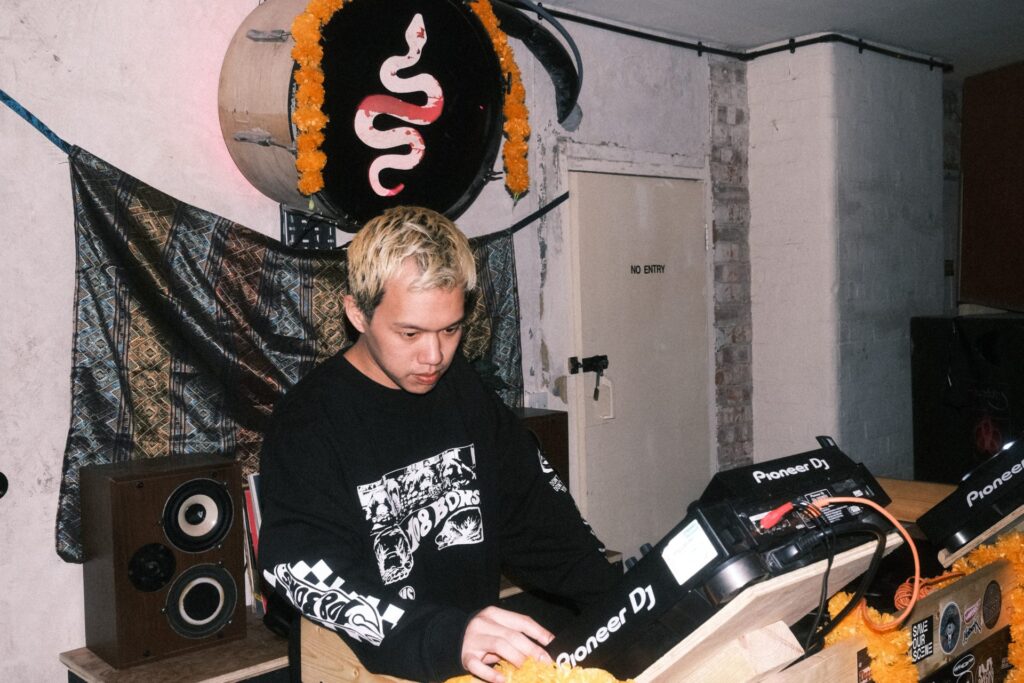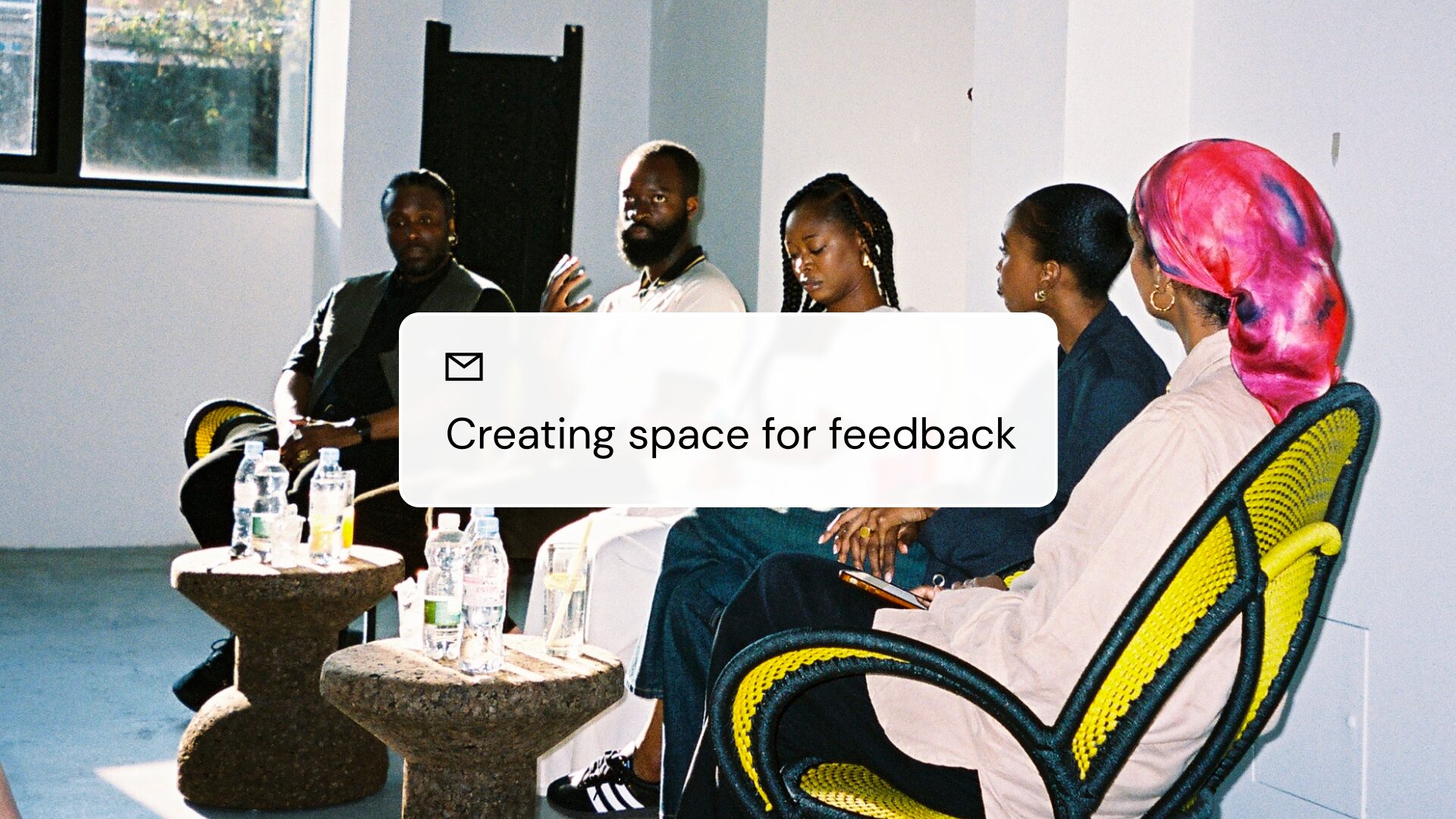Behind every great DJ set is more than just track selection and technical skill – it’s the ability to learn, adapt and evolve. One of the most powerful tools for doing this is DJ feedback. In this article, we’ll explore why feedback is so important for DJs, how it impacts your growth and practical ways to source and use it effectively.
Contents
- 0.1 DJ feedback improves your technical skills
- 0.2 Feedback offers a new perspective on your sound
- 0.3 Feedback connects you with your audience
- 0.4 Feedback encourages creative growth
- 0.5 Feedback builds professionalism
- 0.6 So, how can DJs source feedback?
- 0.7 How can DJs ask for and use feedback effectively?
- 0.8 Embrace the feedback
- 1 Share this:
DJ feedback improves your technical skills
Even if you practice tirelessly, it’s easy to miss flaws in your mixing that others can hear more clearly. Beatmatching slightly off, EQ imbalances or transitions that feel rushed might go unnoticed by you in the booth but stand out to an audience. This is only natural, but if you want to improve as a DJ, this will need to be pointed out.
Getting DJ feedback helps you identify weak points in your mixing technique, spot bad habits before they become ingrained and understand how your set sounds to listeners beyond your own headphones. Technical mastery grows much faster when you have an outside perspective, especially one with an ear for what you might be missing.
Feedback offers a new perspective on your sound
As a DJ, you can often get trapped in your own taste bubble. What feels like a smooth, cohesive journey to you might feel repetitive or disjointed to others. DJ feedback provides fresh ears, helping you understand how your selections are received. This can reveal which tracks work best on the dancefloor, whether your pacing feels engaging or flat and how your personal style is perceived by others. Without this outside perspective, it’s easy to lose sight of how your sound lands in the real world.
Feedback connects you with your audience
DJing isn’t just about what you play — it’s about the shared experience you create. Audience reactions, whether live on the dancefloor or online after sharing a mix, are valuable forms of DJ feedback. By paying attention to what resonates with listeners, you can refine your track choices, adjust your energy levels and create sets that truly connect with your crowd. The stronger your connection with listeners, the more memorable your sets become.
Feedback encourages creative growth
Feedback isn’t only about pointing out mistakes — it’s also about highlighting strengths and pushing you creatively. Positive feedback gives you confidence to explore further, while constructive criticism challenges you to refine your approach. This balance keeps your DJing fresh and evolving instead of falling into predictable patterns. Many DJs credit honest feedback as the spark that pushed them to discover new genres, experiment with different styles or step outside their comfort zone.
Let’s say you’re a Techno DJ; feedback could push you to spin sounds like Minimal Techno, Acid Techno or Industrial. They might be out of your comfort zone initially, but this can enable you to expand your repertoire while staying true to the genre you love.
Feedback builds professionalism
Promoters, bookers and fellow DJs notice when you’re open to feedback. It shows that you’re serious about improving and value the experience of others and not just thinking in your own silo. Being receptive to DJ feedback builds your reputation as someone who is professional, approachable and committed to their craft. This can make a big difference in your career, from getting rebooked for gigs to building stronger industry connections then can then lead to collaboration, more income and your name in lights even more.

So, how can DJs source feedback?
Getting feedback can feel intimidating at first, but there are plenty of ways to make it part of your routine. Here are some of the best sources of DJ feedback:
- Fellow DJs and peers: Share mixes privately with other DJs whose opinion you trust. They’ll often catch technical details others might miss. Mixcloud offers private links via our Pro offering so you can comfortably get valuable feedback.
- Mentors or teachers: If you’ve worked with someone more experienced, ask them to review your sets. Their insights can fast-track your growth and give you more to work on while you’re on your way.
- Friends who are music lovers: Non-DJs can give you honest reactions about the vibe, flow and energy of your mix. That perspective is crucial: it ensures that you can cover all of your bases when it comes to your DJing and how it sounds.
- Online communities: Platforms like Mixcloud or DJ forums can be good spaces to upload and post mixes and ask for constructive input from your peers and your listeners. If you’re on Pro, put out a Post asking for feedback on your recent mix, or ask for live feedback during one of your live streams. Utilise your fanbase to get the answers you need. Then, you can take those comments into your next mix.
- The audience itself: Nothing beats real-time crowd response at gigs. Notice who’s dancing, when energy peaks and when it dips — that’s live feedback in and of itself. In many ways, it’s one of the most important kinds!
- Recording your own sets: Listening back is a form of self-feedback. You’ll hear mistakes and successes that you missed in the moment.
By combining feedback from multiple sources, you get a well-rounded view of your strengths and areas to improve.
How can DJs ask for and use feedback effectively?
Not all feedback is equally useful. What matters is how you seek it out and apply it. To do this, you should:
- Be specific: Instead of asking whether your set was good, try and ask if the transitions felt smooth or if the energy was consistent. The more detailed you can be with your line of questioning, the more you can pull out the particular critiques you’re looking for.
- Choose wisely: Ask for input from people you trust to be honest — peers, mentors or experienced listeners.
- Not take it personally: Feedback is about growth, not judgment. Take every comment in your stride and don’t take it to heart. Every DJ needs feedback, even the biggest ones, so don’t forget why you asked in the first place.
- Act on it: Reflect on the input and make changes in your next mix or set. These can be big changes or you can start off small. Decide how you want to approach your feedback and take your time with it.
By being intentional, you’ll get feedback that actually helps you progress.
Embrace the feedback
Feedback isn’t always easy to hear, but it’s one of the most important tools for becoming a better DJ. Think of it as a mirror that reveals blind spots, strengths and opportunities for growth. Whether it’s from the crowd, fellow DJs or close friends, DJ feedback fuels your evolution. The DJs who rise to the top aren’t just the ones with the best record collections; they’re the ones who learn, adapt and grow through feedback. It’s a surefire way to improve your skills, connect more deeply with your audience and stand out as a professional.
